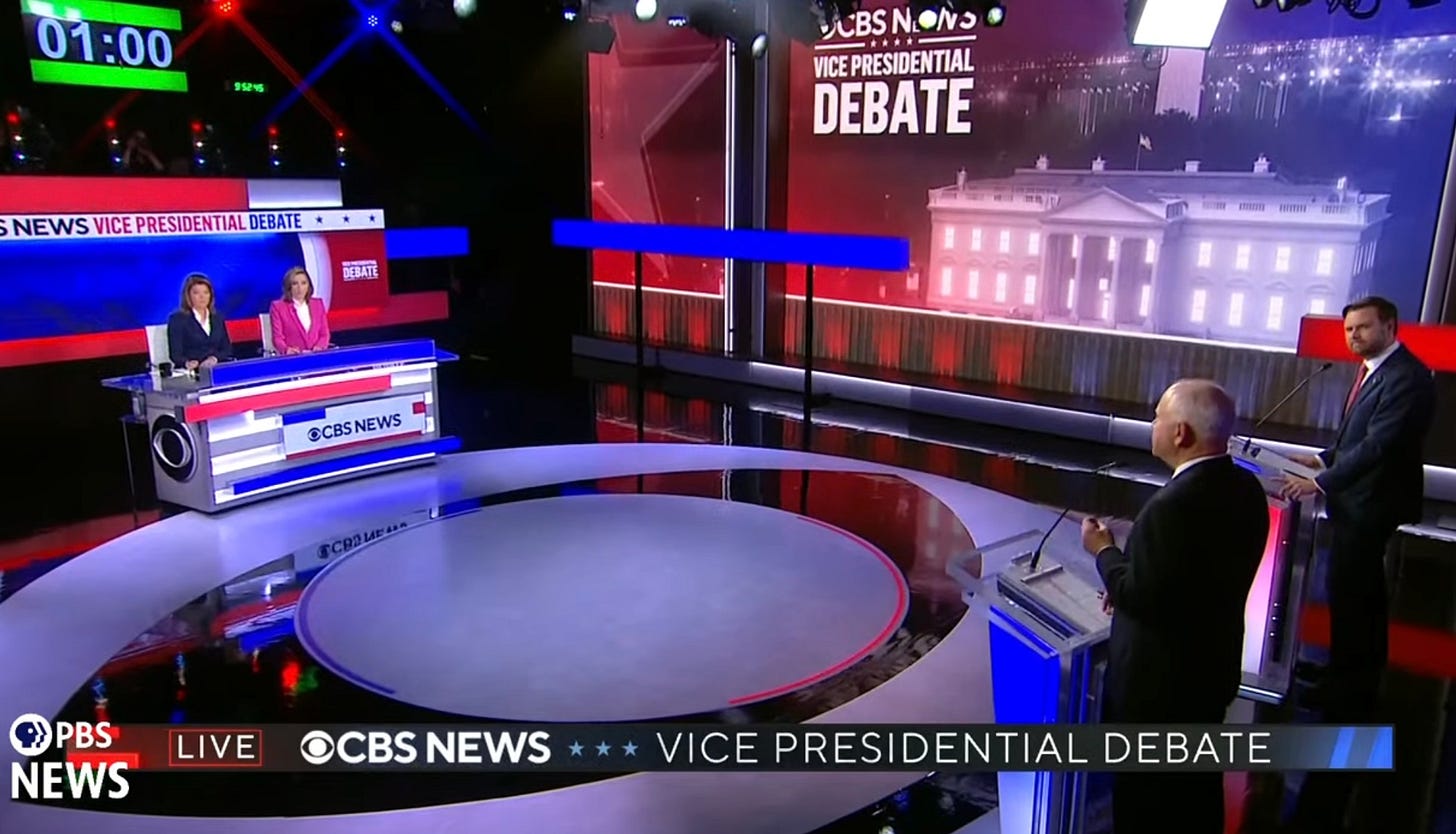I haven’t been shy about voicing my discontent with aspects of the Trump-Vance campaign since the summer’s successful Republican National Convention. The campaign, I’ve argued repeatedly (most notably in a cover story for the New Statesman), was suffering from an identity crisis. Rather than a continuation of the populist, pro-worker uprising first launched in 2015-16, the latest iteration of Trumpism was becoming indistinguishable from bog-standard GOP libertarianism—only rhetorically meaner, more likely to cavort with bigots like Laura Loomer or to accuse Haitian migrants of eating cats and practicing voodoo.
So you can imagine my elation at last night’s vice-presidential debate, in which J.D. Vance not only trounced Tim Walz with a bravura rhetorical performance, but also reminded the country of what a sophisticated populism might look and sound like.
Here, I’m less concerned with Walz’s shortcomings: his halting speech; his hapless look; his inability to explain his own state’s abortion policies; above all, his bizarre inability to explain why he claimed to have been in Hong Kong during the Tiananmen Square massacre when he clearly hadn’t. Others—including the Harris campaign itself—will perform that autopsy. What interests me more is the way in which Vance situated himself and the Trump campaign in a larger post-neoliberal tendency.





